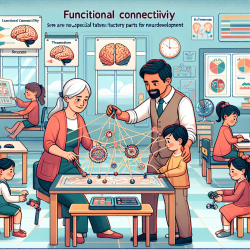Understanding Escalation of Commitment in Schools
In the realm of educational administration, making data-driven decisions is crucial for the success of school programs. However, a phenomenon known as "escalation of commitment" can lead administrators to persist with ineffective programs despite negative performance indicators. This blog explores how understanding and addressing this issue can lead to better educational outcomes for children.
What is Escalation of Commitment?
Escalation of commitment is a decision-making bias where individuals continue investing in a failing course of action due to prior investments of time, resources, or effort. In the context of schools, this can manifest as administrators sticking with ineffective programs, attributing poor performance to factors other than the program itself, such as implementation issues or leadership challenges.
Research Insights
The study "Sticking with Programs That Do Not Work: The Role of Escalation of Commitment in Schools" sheds light on this issue. Researchers conducted interviews with 24 school administrators, revealing that escalation of commitment often occurs when administrators attribute poor program performance to external factors rather than the program itself. This misattribution can lead to continued investment in ineffective programs.
Determinants of Escalation of Commitment
- Psychological Factors: Administrators may feel a sense of personal responsibility for the initial decision, fear reputational harm, or hope for eventual success, leading them to persist with failing programs.
- Organizational Factors: Internal pressures, such as stakeholder support and interdependencies with other programs, can influence the decision to continue with ineffective programs.
- External Factors: Community expectations, state mandates, and contractual obligations can also play a role in the continuation of low-value programs.
Strategies for Improvement
To combat escalation of commitment, school administrators should:
- Prioritize evidence-based practices during the adoption phase.
- Set clear benchmarks for program evaluation and be open to de-adoption if necessary.
- Encourage collaborative decision-making to gain diverse perspectives and reduce bias.
- Provide training on the de-adoption process to ensure administrators are equipped to make informed decisions.
Conclusion
Understanding and addressing escalation of commitment is vital for optimizing educational outcomes. By focusing on evidence-based practices and being willing to de-adopt ineffective programs, school administrators can create a more effective learning environment for students.
To read the original research paper, please follow this link: Sticking with Programs That Do Not Work: The Role of Escalation of Commitment in Schools.










